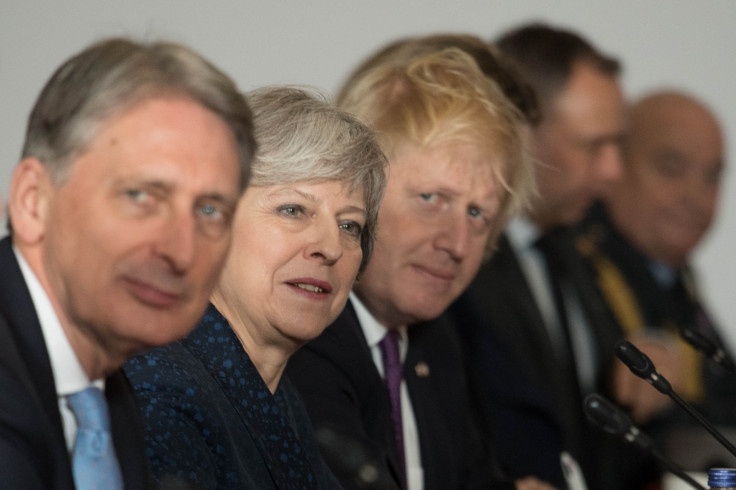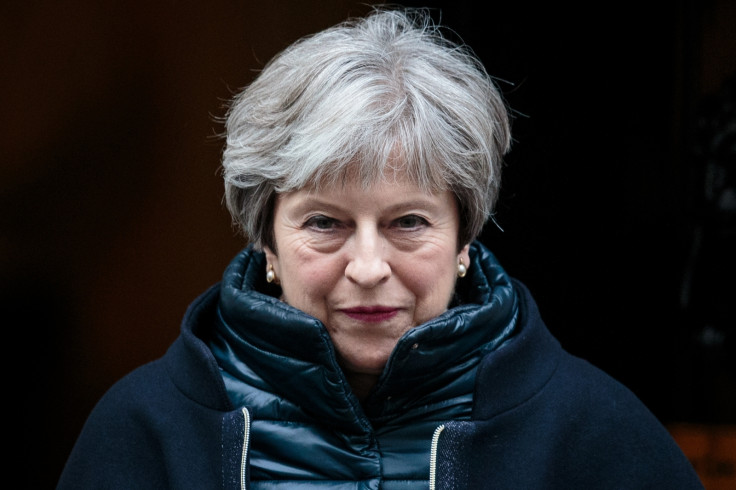Jeremy Hunt defends 'timid' Theresa May as Tories slide towards civil war
KEY POINTS
- Conservative party is split over what kind of Brexit the prime minister should deliver.
- Philip Hammond faced Brexiteer backlash after predicting "very modest" changes to UK-EU relationship.
- Eurosceptic MPs threaten to withdraw support for May.
Health Secretary Jeremy Hunt has denied that Prime Minister Theresa May is too timid to hold the Conservative party together, in spite of the schisms that have opened up over the government's Brexit strategy. The divisions have arisen amid reports that Conservative MPs are close to triggering a leadership election.
Hunt told the BBC that the government's position remained unwavering and that the PM had delivered "absolute clarity" on Brexit.
At the end of a difficult week for May, Chancellor Philip Hammond used his speech to the World Economic Forum on 25 January to suggest there would be only "very modest" changes to the UK-EU relationship after Brexit, prompting fury from the pro-Brexit wing of the party.
May was forced to rebuke the chancellor. Hammond took to Twitter in an attempt to defuse the situation and clarify his statement, but did not retract the words used in his speech.

Brexit Secretary David Davis delivered a speech on 26 January detailing the UK's relationship with the EU during the two-year transition period, in which he said the UK would be able to negotiate and sign trade deals with non-EU countries.
The Telegraph reported that Downing Street was so concerned about the speech that Davis was forced to revise the first draft to avoid further angering eurosceptic Tories.
Conservative MP Jacob Rees-Mogg, recently elected leader of the 60-strong European Research Group made up of pro-Brexit Tory MPs, said the government's tone on Brexit needs to "fundamentally change". Rees-Mogg warned that May would lose the group's support if she attempts to form a customs union with the EU.
The disunited state of May's team had already been exhibited on 23 January, as Foreign Secretary Boris Johnson was given a dressing down in front of the cabinet. Johnson had let it be known ahead of the meeting that we wanted the NHS to receive an additional £5bn Brexit dividend once the UK had left the EU. Johnson was thought to have had the backing of four other cabinet ministers on the issue, including Michael Gove.
Is a leadership contest on the horizon?
Former government minister Nick Boles accused May's administration of "timidity and lack of ambition", a sentiment which The Guardian reports is shared by several MPs.
To trigger a leadership election, 48 Conservative MPs must write to the chairman of the 1922 Committee expressing a lack of confidence in the prime minister. The Sun reported on 24 January that the chairman of the committee was urging MPs to carefully consider the consequences of submitting such a letter, raising suggestions that the number of letters may have already passed 40.
Though leadership manoeuvrings seemed imminent following the 2017 general election car-crash where May lost her party's majority in the Commons and at the Conservative party conference, she is yet to face an official challenge. However, a combination of an unclear Brexit strategy, general uninspired performance and controversial cabinet reshuffle - in which she is accused of mishandling junior appointments - has convinced some MPs that her time is up at Number 10.






